Yahoo Japan x LINE in Dialogue: New Work Styles - Updating the Office Environment to Enhance Employee Well-Being
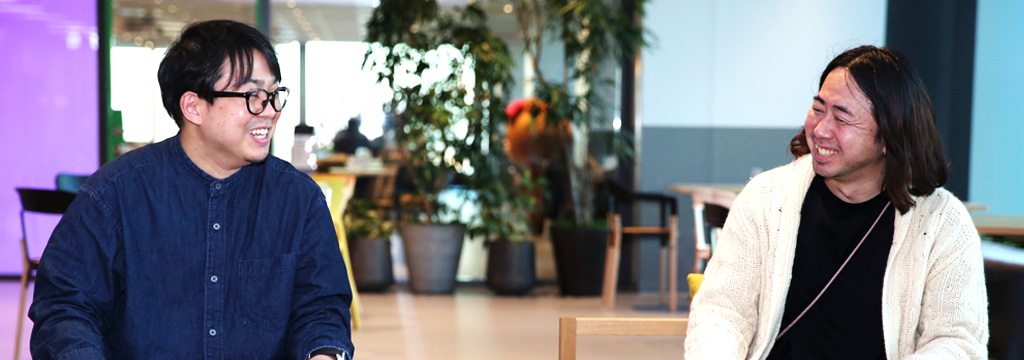
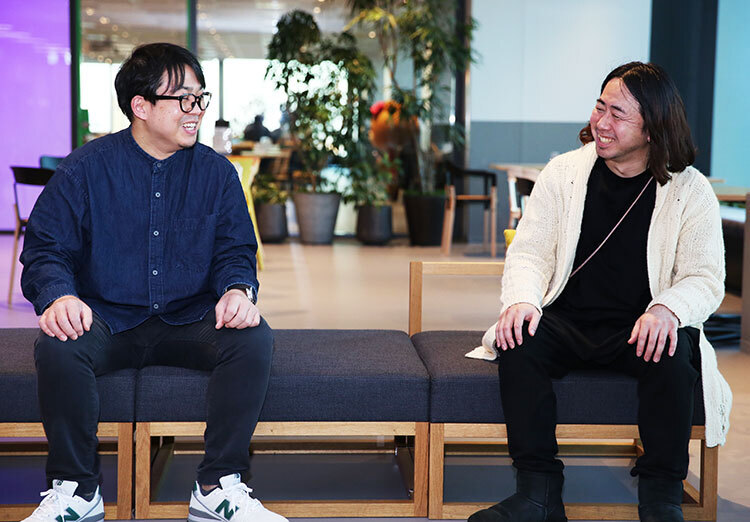
LINE merged its offices and relocated its headquarters to Yotsuya, Tokyo in April 2021. Their office has evolved into a space equipped with collaboration areas and private booths. Meanwhile Yahoo Japan updated its "Dokodemo Office (Office Anywhere)" program by easing restrictions on means of commuting and enabling employees to reside anywhere in Japan from April 1, 2022.
In this article we follow the dialogue between key individuals from LINE and Yahoo Japan, as they discuss the work philosophy behind each company's initiatives, what their respective "updates" look like, and how synergies within the Z Holdings Group may contribute to even more innovation in work environments.
LINE Launches "LINE Hybrid Working Style"
https://linecorp.com/ja/pr/news/ja/2021/3912 (Japanese only)
Yahoo Japan Updates Its "Anywhere Office" Program (An HR Program Allowing Employees to Make Their Own Choice on Where They Work) By Easing Restrictions on Means of Commuting and Enabling Employees to Reside Anywhere in Japan, Etc
https://about.yahoo.co.jp/pr/release/2022/01/12a/ (Japanese only)
INDEX
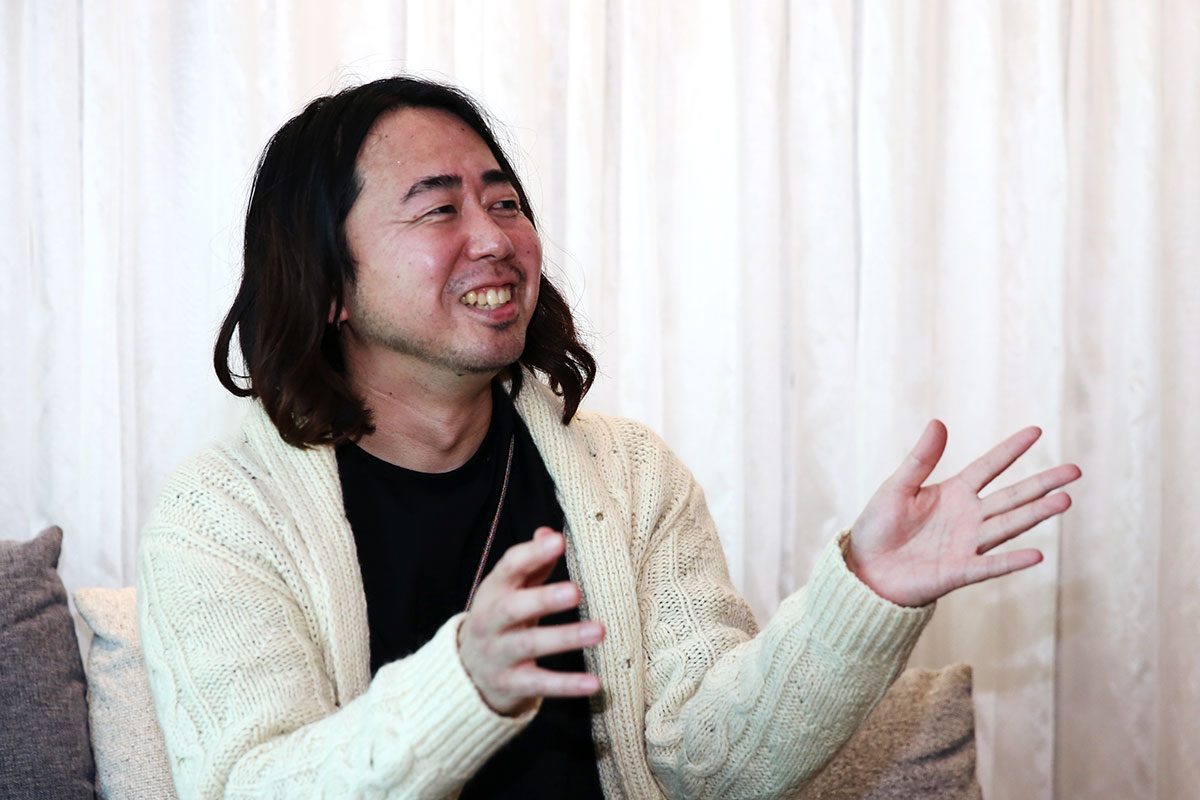
- Takahiro Sakuma (Manager, Strategy Team, Office Optimization Department, Office & Management Support Division, People Development Group, Yahoo Japan Corporation)
- Sakuma worked for an office furniture retailer as a new graduate and was responsible for office design and interior design, before joining Yahoo Japan in November 2013. At Yahoo Japan, Sakuma has been in charge of projects in new office construction, restoration, and renovation that support different work styles. This includes the company's relocation to Kioicho, Tokyo, the floor expansion of its office in Grand Front Osaka, renewal of the Fukoku Seimei Office in Osaka, and the floor expansion of the Akasaka K-Tower Office in Tokyo.
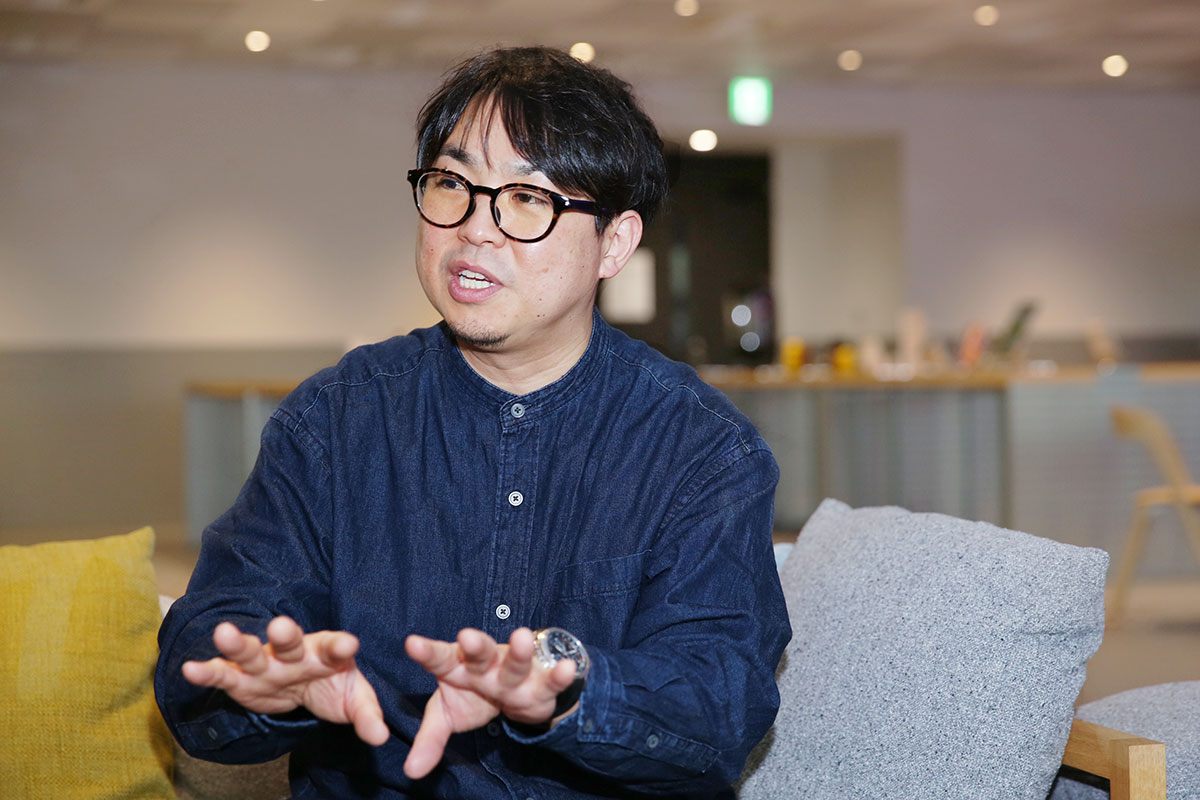
- Keiji Kawasaki (Team Manager, Facility Management Team, Employee Care Department, LINE Corporation)
- After graduating university, Kawasaki took up the role of a space designer at a major office furniture manufacturer, before joining LINE in September 2017. Kawasaki has been involved in the opening, relocation, floor expansion, renovation, and restoration of 14 large and small offices in Japan and overseas, including the merge/relocation of LINE's headquarters to Yotsuya, Tokyo.
Having Options on How to Work Leads to Better Work Experience
-- What kind of environment do you think a "good office to work in" should provide?
Sakuma: What a good office and working environment looks like will differ from person to person, so what we need to do is to provide a range of options. I think it is important not only to think about the office itself, but also to anticipate many different modes of work such as using co-working spaces and working remotely, and to optimize each work environment accordingly. At Yahoo Japan, we place great emphasis on creating an environment that employees can work productively in, and we have made considerable efforts to figure out the means and methods of realizing such environments.
Promotion of Health and Productivity Management
https://www.z-holdings.co.jp/en/sustainability/conditioning/
Kawasaki: LINE's thinking is close to Yahoo Japan. I agree it is important to provide in each location, practical and comfortable environments suited to the tasks at hand. If, for example, the office is a place where many people gather, we need to provide spaces for communication and collaboration, alongside spaces for concentrating on individual tasks, and allow people to choose a suitable place according to what they are trying to achieve. With the increase in the number of people working from home due to COVID-19, it feels like more importance is placed on "offline communication" in offices these days.
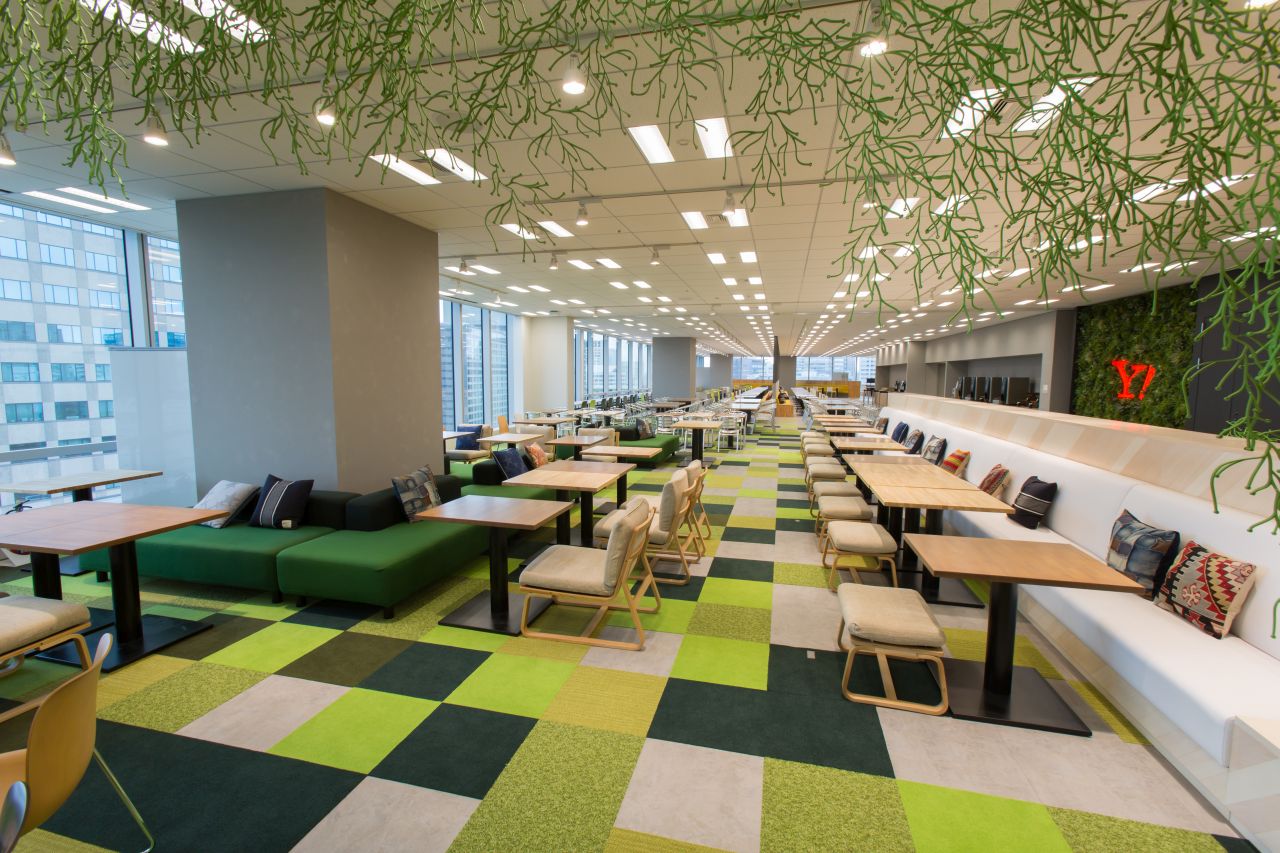
Sakuma: I can say that Yahoo Japan's headquarters in Kioicho, Tokyo, which relocated in 2016, is truly a space designed for communication. When you sit down at the desk, your colleagues are there right in front of you, and you can easily chat and communicate with them to get your work done. At the same time, we also created spaces where people can concentrate, and it's up to you to choose a suitable workspace depending on the work you are doing. Even before the pandemic we tried not to limit the function of the office to just a workplace: we devised mechanisms in the office to improve employee satisfaction, such as creating areas for refreshing, and providing three meals in our in-house cafeterias "BASE" and "CAMP." I think this has contributed to making the experience of working at Yahoo Japan positive.
Kawasaki: LINE carried out a major review of offices following the pandemic. We introduced a free address system based on the attendance rate of each department, closed two offices, consolidated our offices, and relocated our headquarters to Yotsuya, Tokyo. We also launched the new "LINE Hybrid Working Style." Our employees are no longer required to work in the office - they can combine working in the office and working from home according to their team organization and job type, and we introduced more flexibility so that each team can determine the rules that will allow them to perform at their best. Work style preferences differ completely depending on the type of work you do. For example, engineers tend to prefer working from home. By not limiting work styles to a single mode of working, and by allowing each team to make their own choice, I think we can retain human resources and increase the possibility of recruiting talented people.
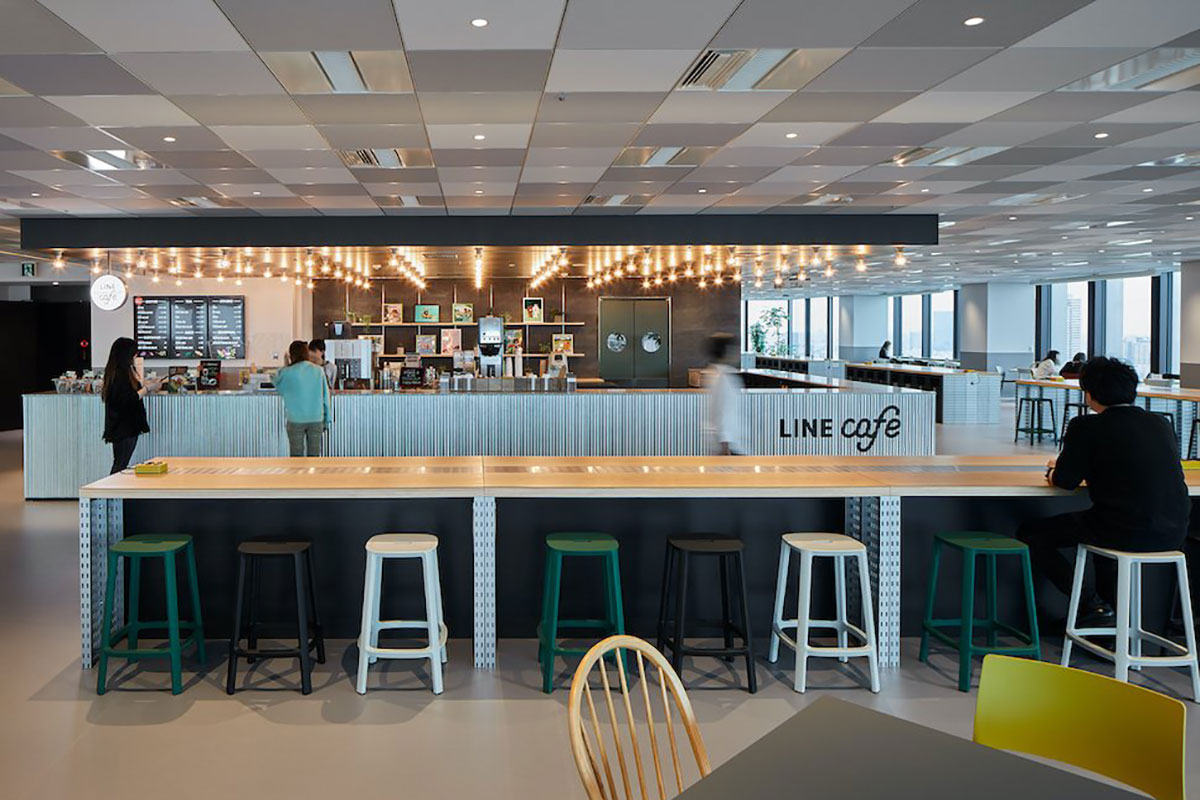
Sakuma: I think the idea of providing a range of work styles and options is a common thread that runs through LINE and Yahoo Japan. There is no end to the creation of a good work environment, though. What's essential is that every employee makes good use of the different options available, and in order for that to happen, we must continuously respond to the changing needs and circumstances of people and update our work environments accordingly. For example, during the moment when the pandemic subsided, some employees who were getting used to working from home, questioned the need for commuting into the center of the city to work in an office. In response, we signed a new contract with the co-working space NewWork, which has many locations along major railroad lines, in addition to our existing contract with WeWork, which provides co-working spaces located in city centers. This resulted in an uplift of the satisfaction figures in our regular employee survey. I would like to continue to ask our employees to try out new schemes to find out what the best modes of work might look like.
Attending to and Respecting the Office Users - Our Employees
-- What is your impression of each other's office? What do you think, Sakuma-san, of LINE's office environment?
Sakuma: I have the impression that LINE pays careful attention to the details of its office. The colors of the partitions in the conference rooms on the visitor floor and office floor are consistent, and I felt that the entire office exhibits a sense of brand unity.
Kawasaki: Thank you for recognizing. LINE has a team called the "Space Design Team" who are specialists in spatial design, and they are the ones who oversaw the design of our office when it was constructed. The team is meticulous about the texture of materials used and the details of our space. As for brand unity, the BX Office (Brand Experience Office) supervises our branding, and we consult them each time when we place characters in the office, for example.
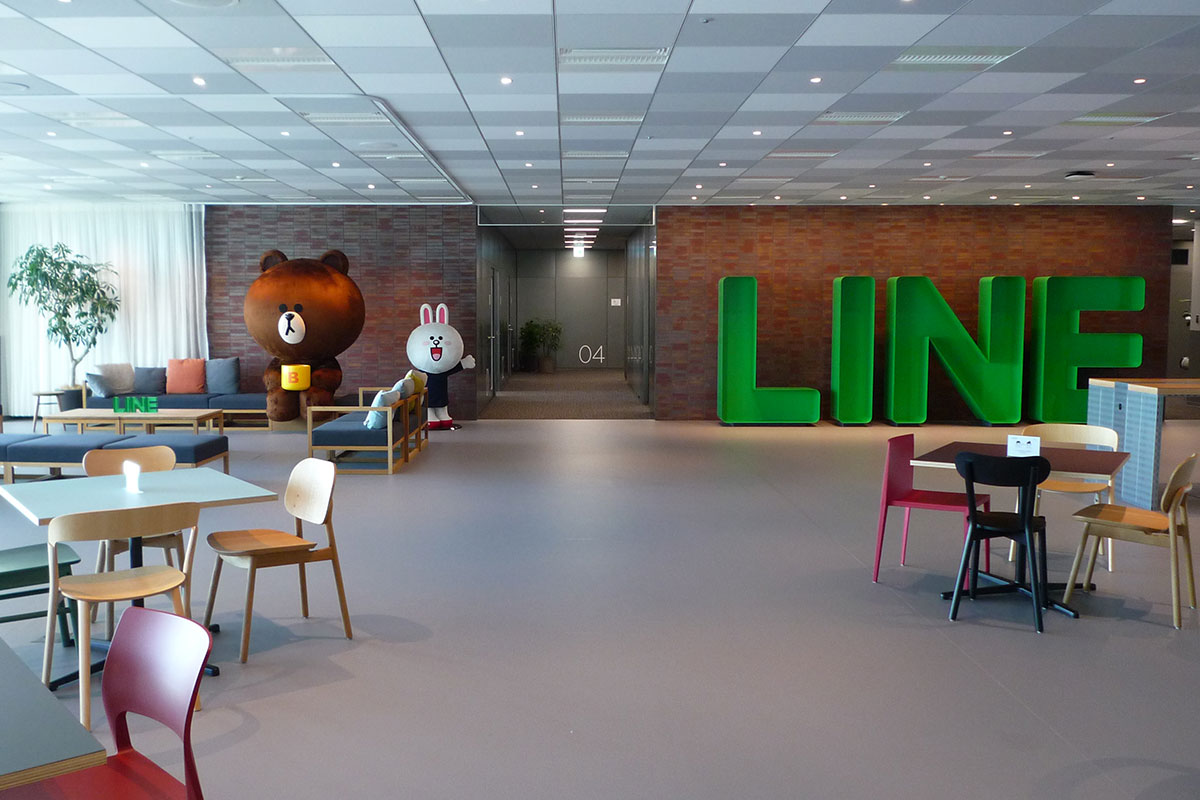
-- Kawasaki-san, how about your impression of Yahoo Japan's office, and their way of thinking?
Kawasaki: I've always had the impression that Yahoo Japan has a very progressive approach to offices. Even before COVID-19, the "Dokodemo Office (Office Anywhere)" program was in place, and the company shifted to a free address system very early. Their process of designing the office is also efficient. By not calling for design competitions, they are able to speed up the time for selecting a design company, and use that time created instead to address employee needs through workshops, for example. I feel that they put substantial effort in pursuing usability for the end users of the office.
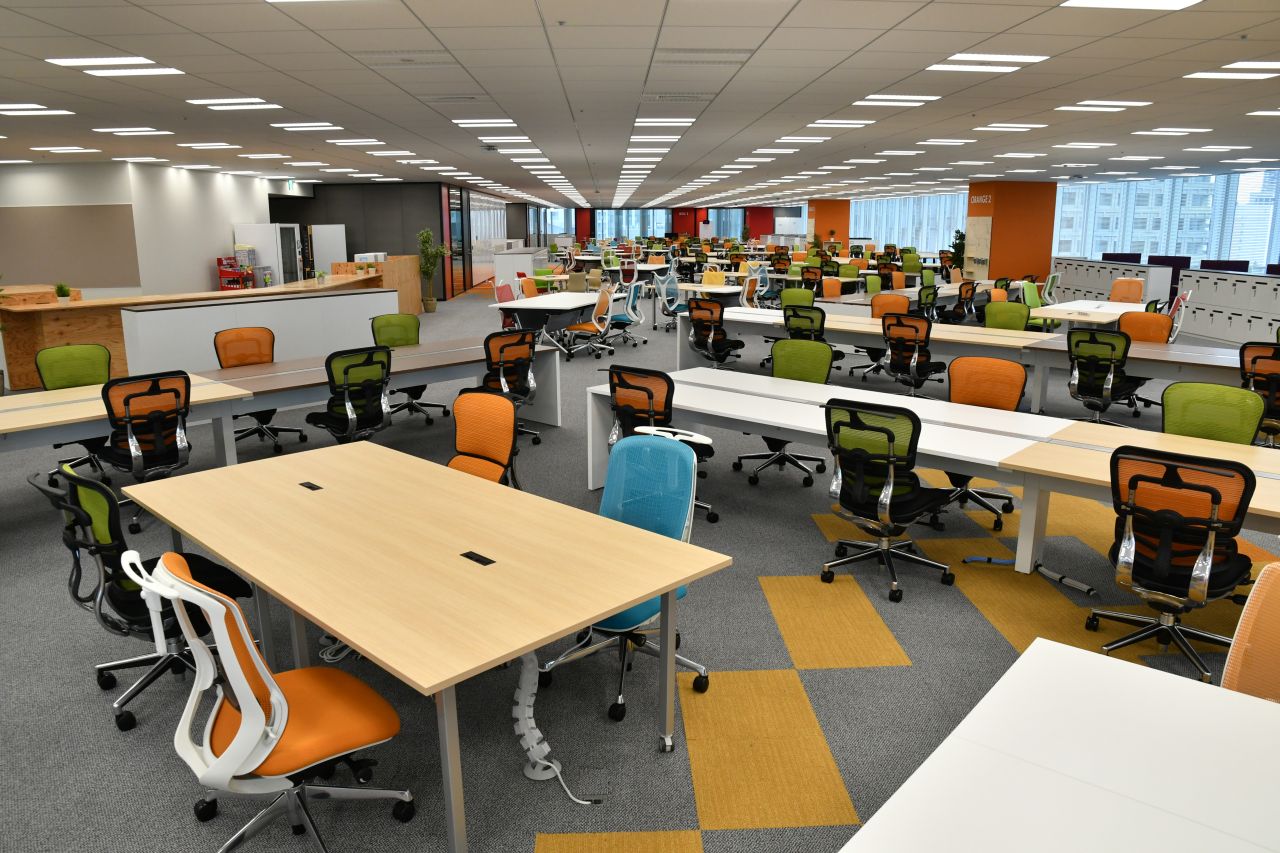
Sakuma: With regard to the free address system, it was introduced speedily, partly due to the direction of our Representative Kawabe. Our efforts to tune into the voices of our employees, on the other hand, came from our experience of relocating to the Kioicho Office. While we saw immediate, positive effects from the many initiatives the company implemented, it sometimes felt like the rationale behind those initiatives were not fully communicated to the employees. Therefore, when we opened the Osaka office, we had representatives from each department take part in a number of workshops to exchange opinions with the design side. For the Kochi Center relocation project, which is currently underway, we carried out five two-hour sessions, spending a total of 10 hours, digging deep into the question: what kind of work style do we want to aspire for?
Kawasaki: That's impressive. LINE is more of a bottom-up company and in our corporate culture, rules are decided based on various opinions exchanged on-site. In our employee survey we found out that many LINERs (LINE employees) hoped for a hybrid work style, which led to the creation of "LINE Hybrid Working Style." I think this new way of working has the potential of increasing both productivity and employee satisfaction.
-- Are there any plans to incorporate employee feedback into the Yahoo Japan office, too?
Sakuma: Yes, in fact, we have already started that in 2021. In an employee survey we conducted in May 2020, after home working became the norm, about half of the employees expressed their wish to work individually, while the other half wanted to communicate with others in the office. In response to this, we set up an area called the "Experimental Office" in our Kioicho Office in order to meet both needs by establishing a "quiet floor for concentrating," and "communicative floor for collaborating."
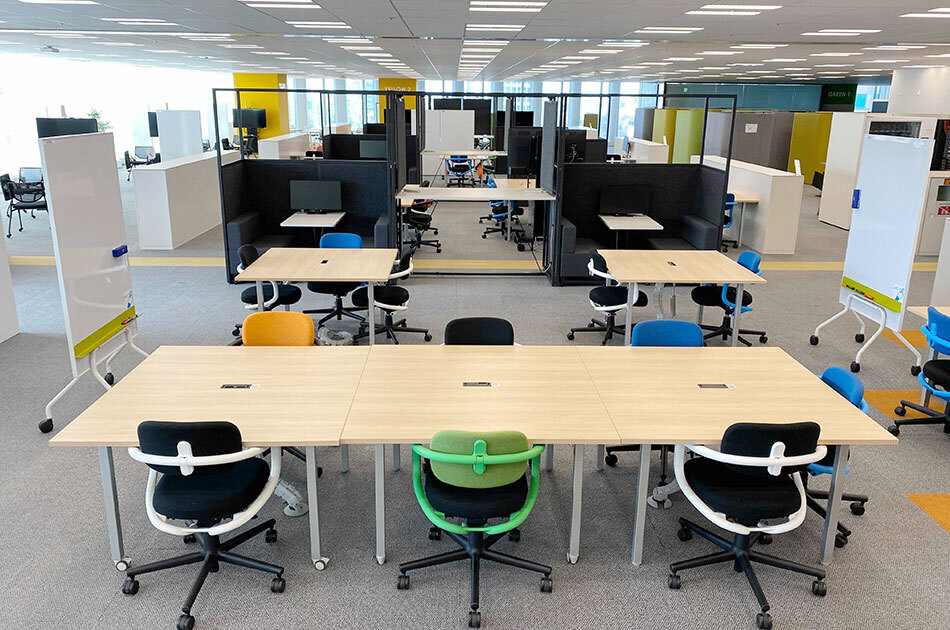
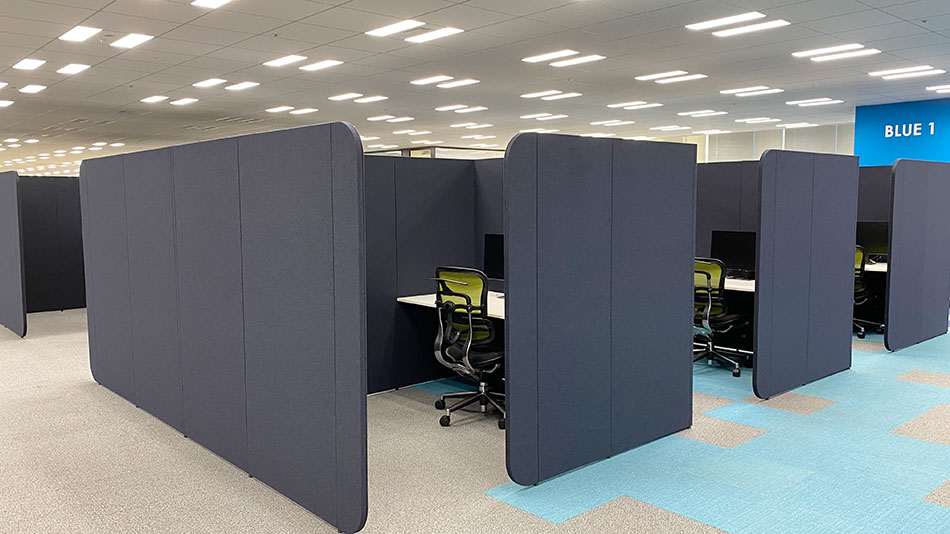
Kawasaki: When building LINE's new office, we also conducted an employee survey. The most popular requests were also spaces for "concentration" and "communication." We built an additional 180 individual booths to accommodate the increasing number of online meetings. Some people pointed out that it is difficult to know if the booths are occupied or not unless you get closer to them, so we plan to make the vacancy visible using lights and a floor map display. In addition, we created a workshop room "LINE CAMP," which accommodates up to 72 people, to facilitate offline workshops and discussions that are often difficult online. The space was named "CAMP" after an open competition among employees, and it is our hope that it will become a place of innovation where everyone can speak up and exchange ideas, just like when you go on a camp together.
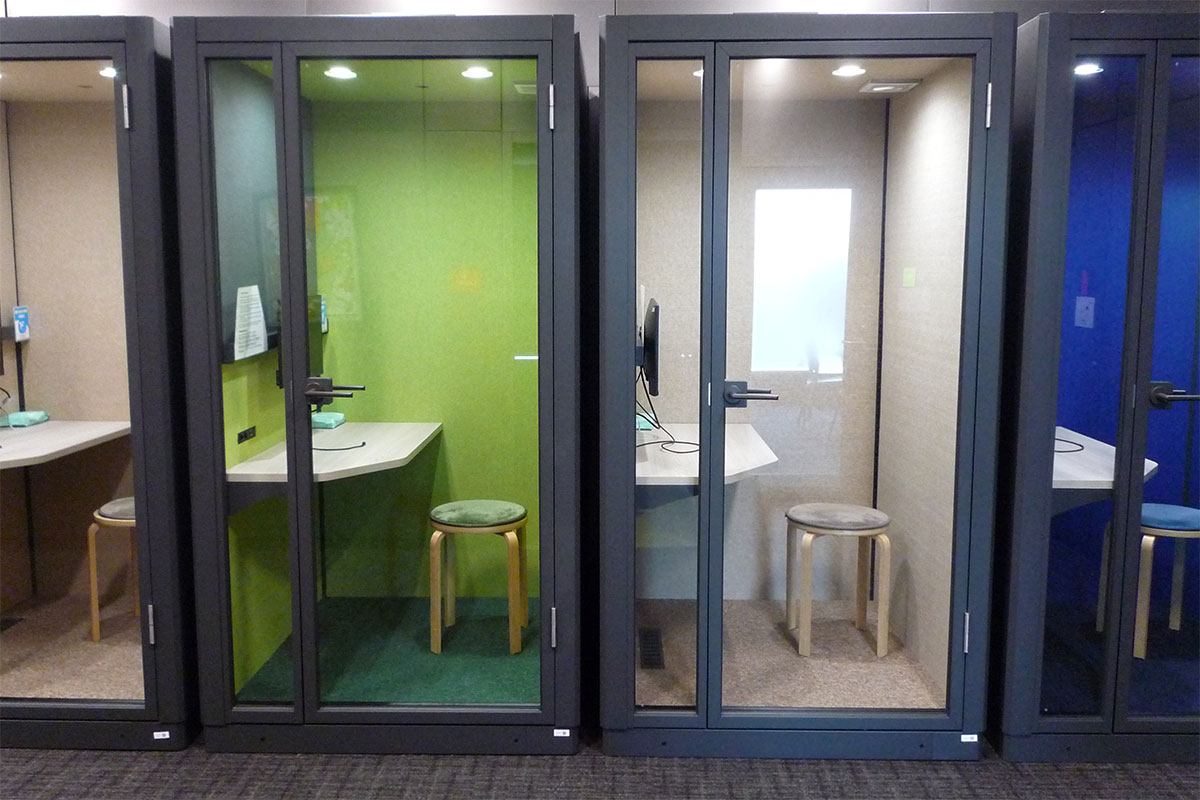
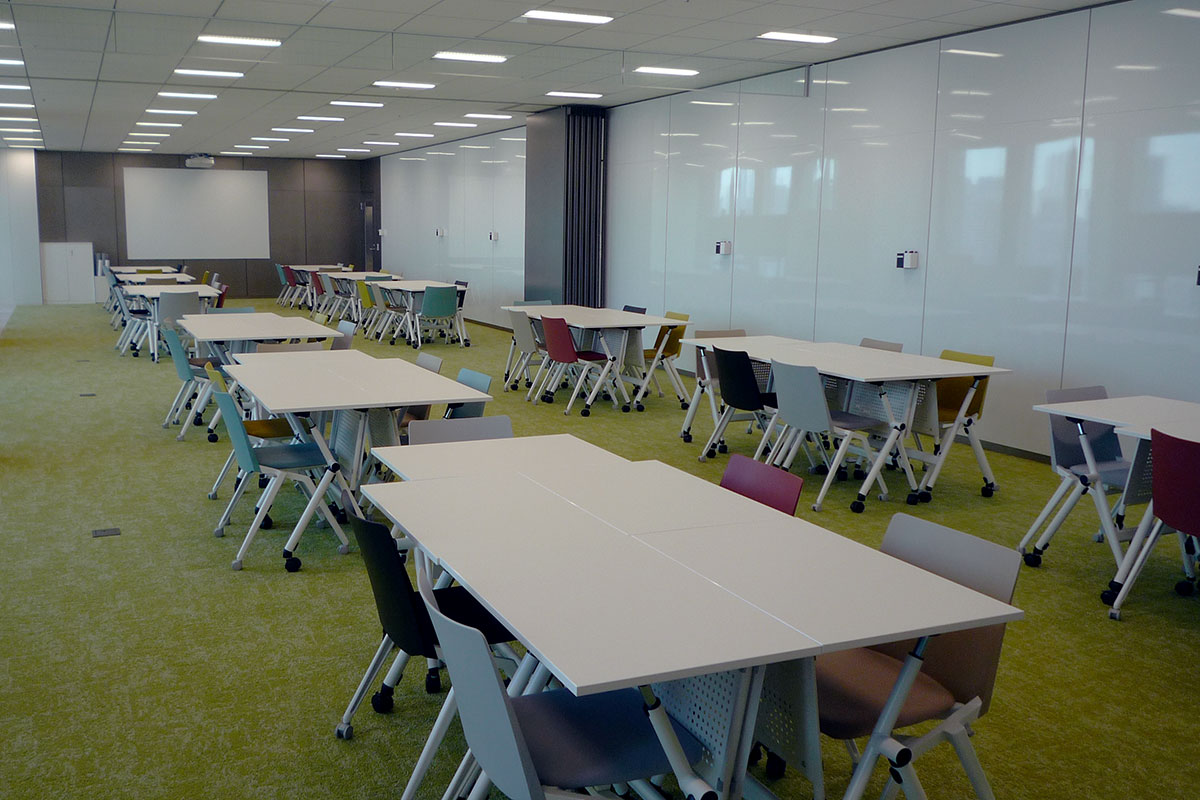
Generating Synergies by Sharing Each Other's Knowledge on Creating Offices
-- Do you have any plans in the future to consolidate the knowledge of Yahoo Japan and LINE, to update the office environments of Z Holdings as a whole?
Sakuma: At the moment, Kawasaki-san and I are still in the process of exchanging opinions. Most recently, we invited Kawasaki-san as an observer to our Kochi Office relocation project to see how our office is being developed. Sometimes Kawasaki-san provides me ideas when I'm thinking about office layouts, and I'm sure there are many things I can learn from the way LINE's office division works, where a large number of projects are handled efficiently by a small team. In the future, we would like to have Kawasaki-san on our team to play a central role in Z Holdings' work, too.
Kawasaki: I have learned so much from observing Yahoo Japan's relocation project, and although the building of office environments for Z Holdings is something for the future, I hope that we can continue to exchange information and participate in each other's projects, so that we can learn from the best practices and brush up ourselves. I can't wait to work on the project together.
-- Finally, in light of the COVID-19 pandemic, what do you think are the things required for offices in the future?
Kawasaki: Although we tend to focus on the negative aspects of the pandemic, there are also possible positive effects in terms of work-life balance, for example, being able to spend more time with your family. In the future, we need to shift and change our offices into places of engagement, branding, and innovation, and to build them into a place that our employees and customers want to visit. To achieve this, I hope we can combine the knowledge of both companies to generate synergies from the areas of office environment and work styles.
Sakuma: I echo your thoughts. At the same time, while we have been thinking more about work-life balance due to the pandemic, I acknowledge that the majority of people in the society still do not have access to remote working arrangements. In other words, companies and work styles for many, have not changed that much. However, I expect that social situations will continue to change drastically, and our work and life could become closer than ever. In order to survive such an environment, I believe that it is crucial for companies to embrace continuous change. With this in mind, I would like the Z Holdings Group as a whole, to continue to pursue good office environments and working experience for all.
Written and edited by: Yoko Sueyoshi, Yajirobe Corp